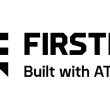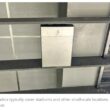Faster isn’t always better
It has been said that good things come to those who wait. I don’t know anything about that. My theory is that life is short, and tomorrow isn’t guaranteed, so why waste time? It’s why I’m so popular with several credit-card companies, as well as an army of Web-based businesses. When I want something, today is good, but yesterday is better. Much better.
I am certain that, given this mindset, I wouldn’t survive long in the portion of the world that spawns technical standards, which tend to evolve at a pace that only a snail could appreciate. There are good reasons for this. Chief among them is that standards committees must create specifications that are in the best interests of the many, not the few. This is a vexing proposition in and of itself, but it’s exceedingly more difficult when under intense pressure from vendors that have a vested commercial interest in seeing their technologies become the basis for the standard.
Understanding that this is the reality is far different than accepting it, something that end users find difficult when they are clamoring for the advanced applications and services that will emerge once manufacturers develop equipment based on the next-generation standard. This is why they put equally intense pressure upon standards committees to speed things up.
In this edition, writer Doug Mohney examines the battle heating up between Motorola and EADS (page 24), each of which is promoting proprietary solutions they hope will be embraced by the committee that is working to finalize Phase 2 of APCO’s Project 25 standard, which would establish technical specifications for an IP-based backbone infrastructure.
One source told Mohney that Motorola’s solution can be implemented today without a lot of effort, but EADS’ approach could provide a better long-term answer. Given Motorola’s stature in the U.S. public-safety sector — it is the established leader while EADS is a relative newcomer — and the desire for instant gratification, there will be a temptation among committee members to grab the low-hanging fruit.
That would be a mistake. Another reason standards committees tend to be deliberate is they know that making the wrong choice can gravely affect an industry’s vendors and end users for years. The Phase 2 committee should note that while EADS might be new to public safety, it is a large provider of such infrastructure in Europe. The company also is highly regarded for its engineering acumen, having developed the Airbus airliner, combat helicopters and the Galileo satellite navigation system. Consequently, the committee would be wise to step back and let the battle between EADS and Motorola play out. If they do, their patience almost certainly would be rewarded.
















